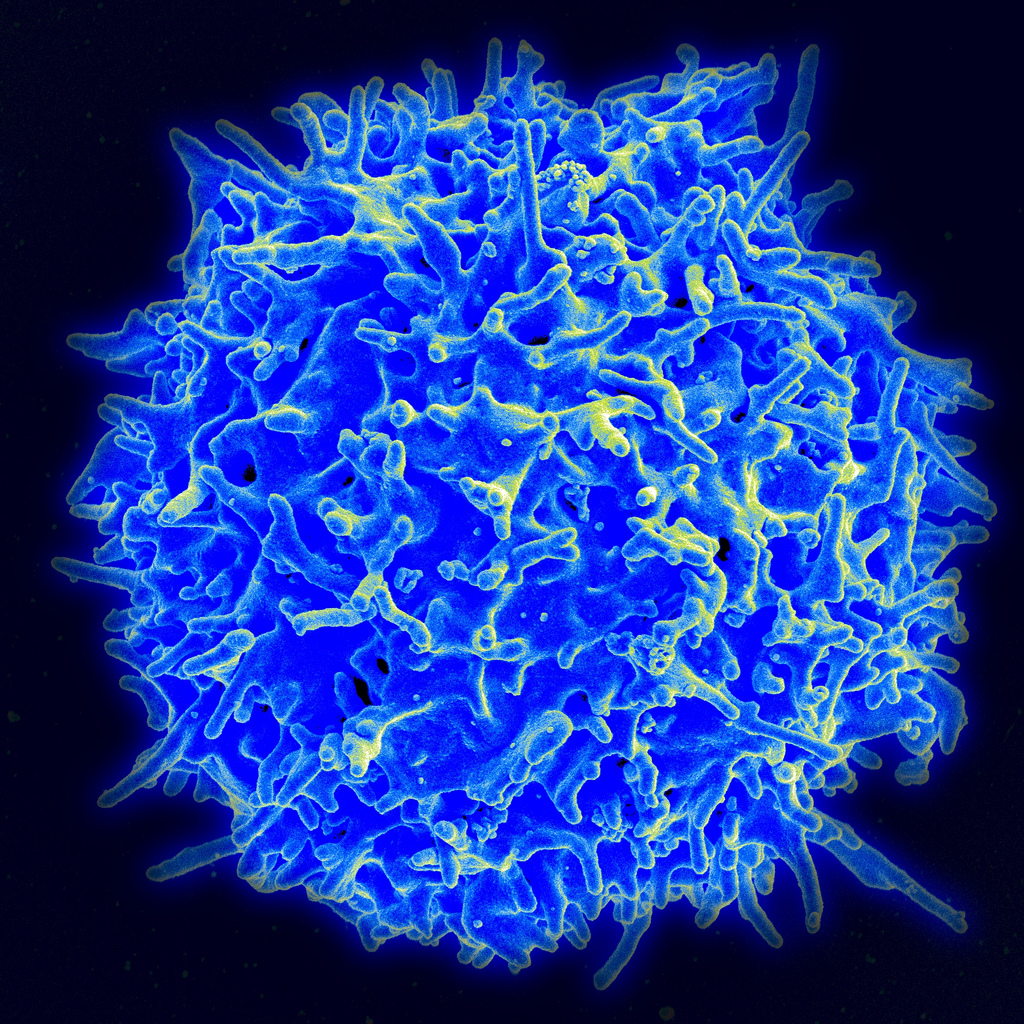Research News and Notes

Caption: Healthy Human T Cell. Scanning electron micrograph of a human T lymphocyte (also called a T cell) from the immune system of a healthy donor. Credit: NIAID (NIAID/NIH – NIAID Flickr’s photostream).
We’re pleased to share recent news and research accomplishments of former JCC Fellows.
In January 2018, Athma Pai joined the faculty at the University of Massachusetts Medical School as an Assistant Professor in the RNA Therapeutics Institute. As a PhD student in human and comparative genomics in the Department of Human Genetics at the University of Chicago, Pai worked with Yoav Gilad and collaborated closely with Jonathan Pritchard’s group, where she mapped molecular quantitative trait loci (QTLs) in humans for many transcriptional regulatory mechanisms. Today, she studies the speed and efficiency at which RNA molecules are created and processed to ensure proper cellular functions. To do so, her lab combines high-dimensional computational analyses with state-of-the art genetic, molecular, and cellular genomics techniques to probe mechanisms of RNA maturation. One of her recent studies, published in PLoS Genetics, identified numerous recursive sites that contribute to the accuracy of splicing in long introns in flies.
Bill McGinnis, professor in UC San Diego’s Section of Cell and Developmental Biology and former dean of the Division of Biological Sciences, was recently elected into the National Academy of Sciences. He was a Jane Coffin Childs Fellow at the University of Basel, after he had earned his PhD at UC Berkeley in 1982. He then became a faculty member at Yale University in 1984 before joining the faculty at UC San Diego in 1995. Throughout his career, he has studied the genetic controls underlying the development and regeneration of tissues in animal embryos. Among his many scientific contributions, he found that Drosophila could serve as a model system for mammalian genes controlling embryonic development.
Hening Lin, HHMI investigator and professor of chemistry and chemical biology at Cornell University, recently published two studies about the oncogene RAS, the most frequently mutated gene of its type in human cancer. These two studies are among the 30 papers he has published since 2018. Lin was a JCC Fellow (2003-2006) with Christopher Walsh at Harvard Medical School, after earning his PhD from Columbia University with Virginia Cornish. He joined the Cornell faculty in 2006 and became an HHMI investigator in 2015.
Vivian Irish, professor and chair of Molecular, Cellular, and Developmental Biology at Yale University and professor of ecology and evolutionary biology, recently moved her lab into the brand new Yale Science Building, which boasts seven stories and 280,300 square feet of newly finished space. There, she will continue her work understanding the genetic and molecular mechanisms that control patterning processes in plant development, using molecular, genetic and modeling approaches. Early in her career, Irish studied developmental genetics in Drosophila before turning her attention to plant. Irish chose to complete a second postdoctoral fellowship with Ian Sussex at Yale University, where she was a Jane Coffin Childs Fellow and an NSF fellow. She was recently profiled in Current Biology.